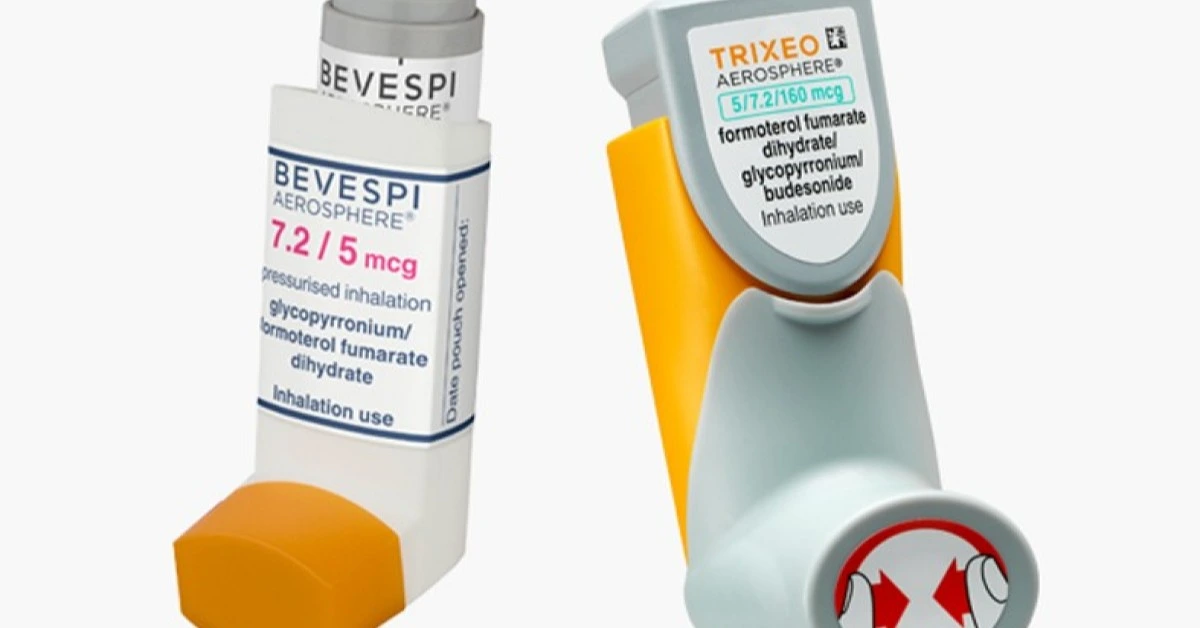
UK – AstraZeneca’s Trixeo Aerosphere has become the world’s first pressurised metered-dose inhaler (pMDI) to be approved using a near-zero Global Warming Potential propellant.
The UK’s Medicines and Healthcare products Regulatory Agency (MHRA) has authorised the use of this new, environmentally friendly version, marking a major step toward greener respiratory treatments.
This version of Trixeo replaces the older HFA-134a propellant with HFO-1234ze(E), which is not part of the active medication but is essential for delivering the inhaled dose.
The new gas has 99.9% less impact on the environment compared to current pMDI propellants. While the medicine itself, used for managing chronic obstructive pulmonary disease (COPD) – remains unchanged, this new formulation helps reduce the carbon footprint of patient care.
COPD affects approximately 1.2 million people in the UK and is a major cause of emergency hospital admissions.
Trixeo Aerosphere is a long-term maintenance treatment taken twice daily. It helps improve breathing, reduce coughing and wheezing, and prevent flare-ups.
The low-carbon version will be made available to UK patients in the second half of 2025. The current formulation will still be accessible to ensure uninterrupted care.
The MHRA has stressed the importance of maintaining access to effective medicines while supporting the shift to more sustainable healthcare options.
Julian Beach, Interim Executive Director of Healthcare Quality and Access at MHRA, said that the decision supports both patient safety and environmental goals.
He noted that while pMDIs are vital in treating conditions like COPD, their traditional propellants contribute significantly to greenhouse gas emissions. This approval offers a solution that does not sacrifice clinical quality.
AstraZeneca’s Executive Vice President of BioPharmaceuticals, Ruud Dobber, called the approval a key moment in the company’s mission to make its entire pMDI portfolio more climate-friendly.
“This is a win for patients and the planet,” he said, underlining the global impact of COPD and the need for responsible innovation.
Inhalers using propellants currently account for 70% of all inhalers prescribed in the UK and contribute around 3% of the NHS’s total carbon emissions, making them the biggest contributor among all medicines.
In contrast, countries like Sweden have already shifted to greener options, with just 13% of inhalers sold being pMDIs.
UK Minister of State for Health, Karin Smyth, said the approval shows the country is leading the way in delivering high-quality, eco-conscious medicines.
She added that through the government’s Plan for Change, the NHS will reduce its carbon footprint and continue working toward a Net Zero future.
Respiratory expert Professor Omar Usmani from Imperial College London welcomed the development, saying that it allows doctors to choose the most effective treatment without compromising environmental values.
“Patients and clinicians can now focus on health outcomes and climate action together,” he said.
XRP HEALTHCARE L.L.C | License Number: 2312867.01 | Dubai | © Copyright 2025 | All Rights Reserved